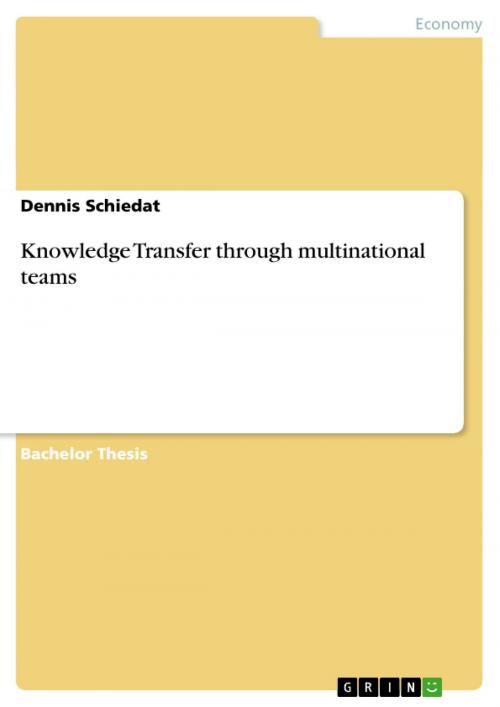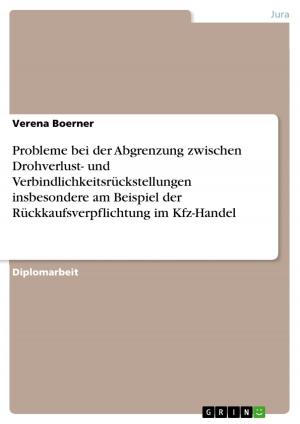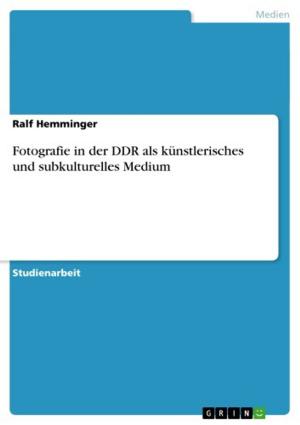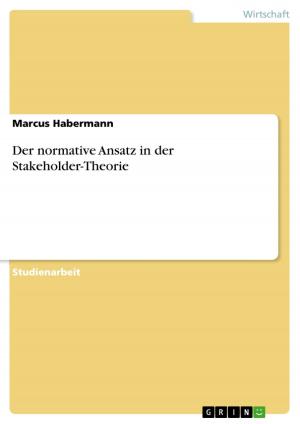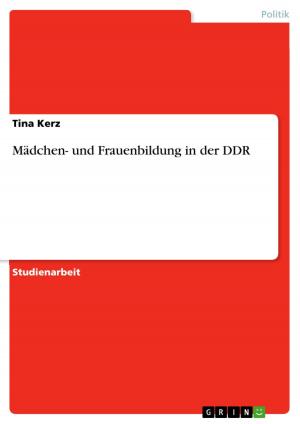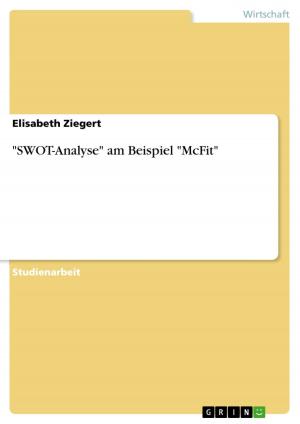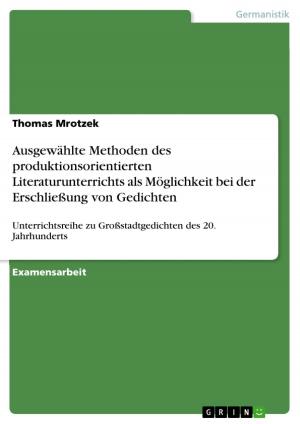Knowledge Transfer through multinational teams
Business & Finance, Human Resources & Personnel Management| Author: | Dennis Schiedat | ISBN: | 9783656162032 |
| Publisher: | GRIN Verlag | Publication: | March 29, 2012 |
| Imprint: | GRIN Verlag | Language: | English |
| Author: | Dennis Schiedat |
| ISBN: | 9783656162032 |
| Publisher: | GRIN Verlag |
| Publication: | March 29, 2012 |
| Imprint: | GRIN Verlag |
| Language: | English |
Bachelor Thesis from the year 2011 in the subject Business economics - Personnel and Organisation, grade: 1,7, University of Tubingen, language: English, abstract: The purpose of this dissertation is to analyze different theoretical approaches of research about knowledge and multinational teams to determine, whether multinational teams can be a way of transferring knowledge in a multinational corporation. According to the research that has already been conducted in this field, multinational teams can indeed be one way of transferring knowledge between dispersed multinational units in order to leverage its competitive advantage of sharing knowledge. This is mostly done by means of interaction between different team members who share knowledge in continuously communicating and working together, therefore benefiting from explicit and tacit knowledge of team members. Teams can create synergetic effects and not only share knowledge within a team, but also create new knowledge. This dissertation recognizes multinational teams as a suitable way of transferring knowledge. However, due to reasons of language barriers, lack of motivation and costs, a multinational team should not be used as the only means of transferring knowledge through multinational organizations.
Bachelor Thesis from the year 2011 in the subject Business economics - Personnel and Organisation, grade: 1,7, University of Tubingen, language: English, abstract: The purpose of this dissertation is to analyze different theoretical approaches of research about knowledge and multinational teams to determine, whether multinational teams can be a way of transferring knowledge in a multinational corporation. According to the research that has already been conducted in this field, multinational teams can indeed be one way of transferring knowledge between dispersed multinational units in order to leverage its competitive advantage of sharing knowledge. This is mostly done by means of interaction between different team members who share knowledge in continuously communicating and working together, therefore benefiting from explicit and tacit knowledge of team members. Teams can create synergetic effects and not only share knowledge within a team, but also create new knowledge. This dissertation recognizes multinational teams as a suitable way of transferring knowledge. However, due to reasons of language barriers, lack of motivation and costs, a multinational team should not be used as the only means of transferring knowledge through multinational organizations.
